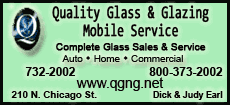|
 But even though most uses of the drug are illegal, he is absolutely certain that selling HGH isn't against the law, as long as customers have a prescription. But even though most uses of the drug are illegal, he is absolutely certain that selling HGH isn't against the law, as long as customers have a prescription.
"It's the same thing as getting antibiotics," the 26-year-old bodybuilder said in a recent interview.
His confidence is understandable. Seventeen years after Congress made it a felony to distribute synthetic HGH improperly, there is still confusion about who may legally get the drug.
Doctors, pharmacists and even law enforcement agents disagree about the meaning of the law that, at least on paper, appears to ban prescriptions for HGH for anything other than a handful of rare illnesses.
The Food and Drug Administration has warned that anyone who distributes HGH for athletic enhancement or as an anti-aging remedy faces up to five years in prison, but that threat is rarely enforced.

Web sites frequented by bodybuilders brazenly hawk mail-order growth hormone as a way of increasing strength and stamina.
George's company, South Beach Rejuvenation and Health, touts the drug as a "fountain of youth," capable of removing wrinkles and boosting sex drive.
"Rejuvenation" centers catering to aging Baby Boomers offer HGH injections as a remedy for everything from low energy to expanding waistlines.
Distributors, according to a recent FDA alert, have increasingly offered to fulfill demand by importing unapproved versions of the drug from China, even though all such shipments are flatly illegal.
After years of treating it as a minor problem, some law enforcement agencies have recently turned more attention to HGH.
In September, the founder of one of China's largest drug manufacturers, the GeneScience Pharmaceuticals Company, was indicted on federal charges that he smuggled huge amounts of HGH into the U.S.
Last month, state officials seized $7.5 million in Chinese-made growth hormone from a Brooklyn pharmacy that had been supplying anti-aging clinics in New York and Florida.

A St. Louis pharmacy company, Specialty Distribution Systems Inc., agreed to pay a $10.5 million fine for distributing HGH to athletes, entertainers and others who didn't qualify for treatment.
And since the spring, a long list of doctors, clinic owners and pharmacy operators from several states have faced charges in Albany that they distributed HGH and steroids to patients who had no medical need for the drugs.
However, authorities acknowledge that the crackdown has been limited.
Prosecutors have been especially reluctant to take on one of the largest sources of HGH: Doctors who prescribe the drug as part of an anti-aging regimen.
[to top of second column]
 |

Under the law, physicians are allowed to prescribe HGH when a patient's pituitary gland stops producing normal amounts of hormone, usually because it has been damaged by a tumor or a cancer treatment like surgery or radiation therapy.
Since the early 1990s, however, a minority of doctors have claimed that millions of other adults also can be legitimately said to have a hormone deficiency because the pituitary gland naturally tapers off HGH production after a person reaches middle age.
The growth of that approach infuriates doctors like Thomas Perls, an aging expert at Boston University Medical School, who said that while HGH has legitimate benefits there is little evidence to back claims it can slow aging.
"It's the worst kind of quackery," he said.
It also may not be safe, he said. Some studies have suggested that people who take HGH supplements run a greater risk of getting cancer. HGH treatment can also have side effects like joint pain and diabetes.
Prosecuting doctors, however, isn't easy. Just last week, one of the FDA's few efforts to crack down on a doctor ended in failure. A federal jury acquitted Reno, Nev., physician James Forsythe, who was charged in 2005 with prescribing HGH to middle-aged patients who wanted to get into better shape. Forsythe denied doing anything wrong.

State medical boards also appear loath to discipline physicians.
New York's Board for Professional Medical Conduct has taken action against only a handful of doctors in the past two decades for writing unwarranted HGH prescriptions.
After Albany Country District Attorney P. David Soares complained last spring that legal loopholes had made it more difficult to target doctors selling the drug to bodybuilders, Sen. Charles Schumer proposed a bill that would put HGH in the same regulatory category as narcotics and steroids.
At least some people in the business agree that changes are needed.
"The industry is polluted with the wrong types of people," said Brian Cotugno, a Floridian who worked as a consultant to several hormone replacement clinics.
Like George, Cotugno's original background wasn't in medicine. As a young man, he served a 10-year prison sentence for cocaine trafficking.
After his release, he said, he became a consultant, telling clinics how to satisfy government regulations. But he said many of his clients ignored advice that might cut into their profits.
Cotugno said he recently stopped advising the clinics, and abandoned a small HGH marketing business of his own.
"It always ended with some sort of disastrous scenario," he said.
[Associated
Press; By DAVID B. CARUSO]
Copyright 2007 The Associated
Press. All rights reserved. This material may not be published,
broadcast, rewritten or redistributed.
 |